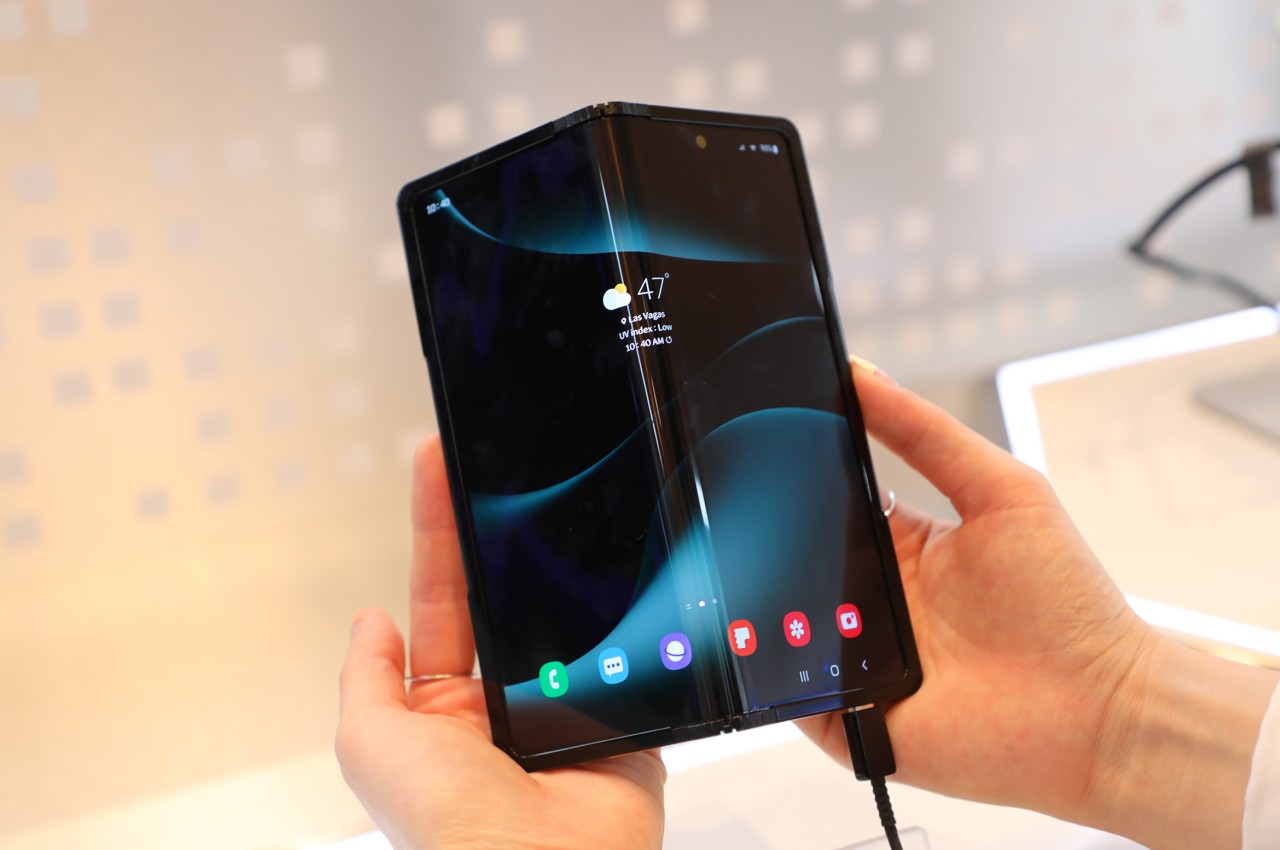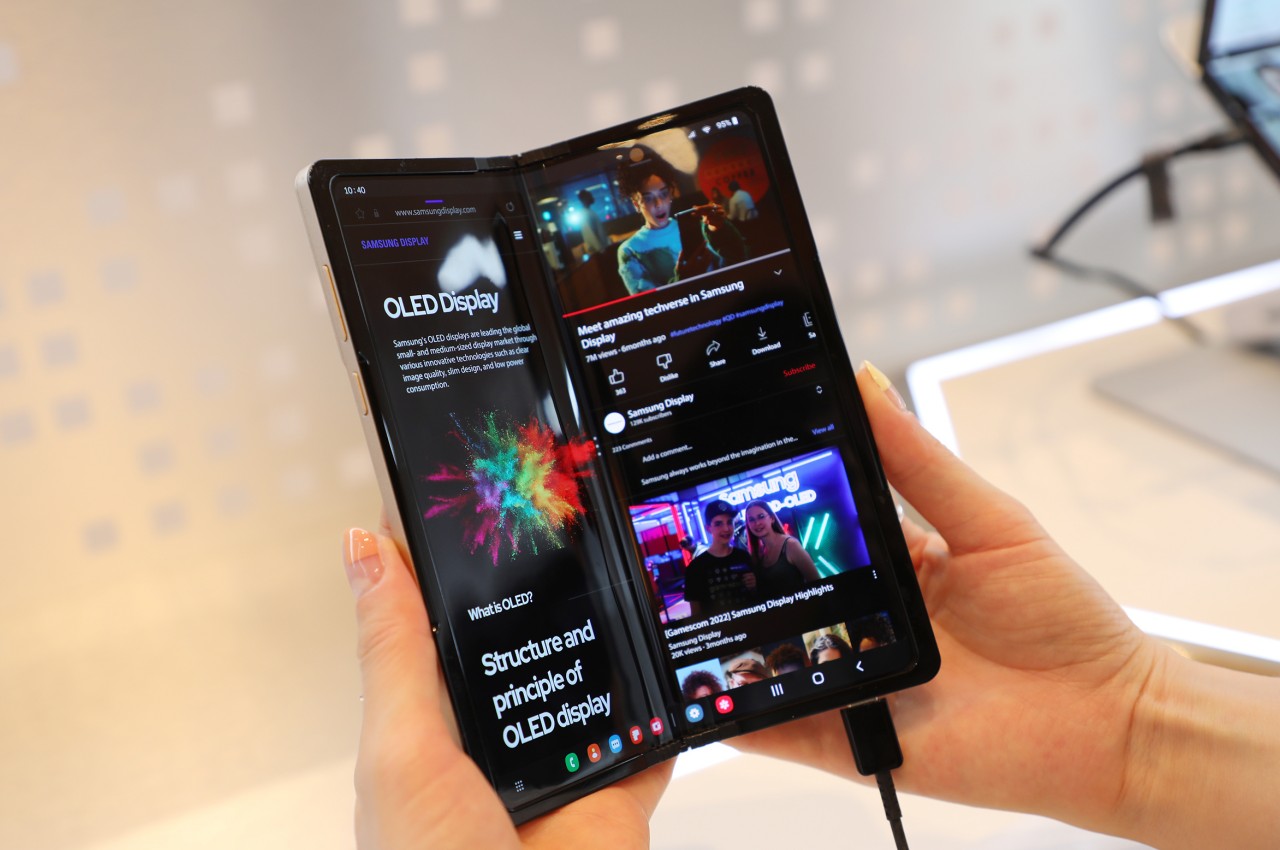
Foldable phones might seem like eccentric luxuries, but they do also try to solve a problem, that of the paradox of display size. Consumers want larger screens that allow them to enjoy their content more comfortably but do not want actually large devices that make it inconvenient to carry them around. Foldable phones try to offer the best of both worlds of a handy smartphone and a large tablet, but current technologies have too many compromises to make that happen, not to mention price tags that prevent these devices from becoming mainstream at all. While creases are starting to disappear slowly, durability is still a major concern. More importantly, current designs require a second “outer” display to make the phone usable even when folded shut. Samsung is now showing off a new foldable display and hinge that can bend both ways, potentially putting an end to all the foldable design debates.
Designer: Samsung (via The Verge)

Although Samsung’s Galaxy Z Fold might seem to be the standard design for foldables these days, it wasn’t the only one in the beginning. The Royole FlexPai and the Huawei Mate X (as well as the new Huawei Mate Xs 2), both of which launched before the first-gen Galaxy Fold, had an “outie” design where the screen folded outward and backward. This created a device that only had a single screen, reducing the components and complexity required by an “innie” design like the Galaxy Z Fold. At that time, however, the fragile nature of flexible screens and early hinge technologies made that design less than appealing.
The likes of the Galaxy Z Fold 4, OPPO Find N2, and other “innie” foldables protected that expensive display panel but at the cost of needing an external screen if you wanted to use the device as a regular phone when closed. Otherwise, you’d be left with something like the Microsoft Surface Duo that had to be folded backward to make use of even a single screen. The ideal for a foldable phone would be folding both inward and outward, and that is what Samsung’s “Flex In & Out” display is trying to propose.
At first glance, the prototype looks like an ordinary Galaxy Z Fold phone with its flexible panel folding inward. However, it can actually bend past 180 degrees all the way to 360 degrees, which means it can completely fold back in the opposite direction. This really combines the best of both worlds of innie and outie designs, removing the need for a second external screen and potentially reducing the build cost of the entire device.
Samsung showed off a similar technology last year in the form of the “Flex S” display, though that seemed to only fold in one or the other direction rather than both. It is unknown when this display will be ready for production and mass consumption, presuming it’s even durable enough to withstand not only multiple folding but also hard objects inside pockets or bags. It might still take a year or so for this device to actually become available for purchase, so Samsung fans will have to settle for a more traditional Galaxy Z Fold 5 with a hopefully improved “waterdrop” hinge.